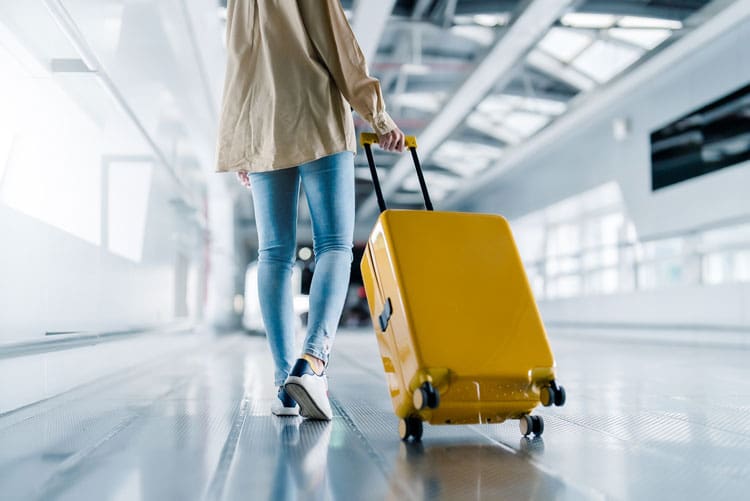Taking a vacation is a time to relax, recharge, and experience new places. However, if you’re in recovery from drug or alcohol addiction, vacations can bring unexpected triggers that put your sobriety at risk. That doesn’t mean you have to avoid traveling altogether. With the right planning and mindset, you can enjoy a sober vacation that supports your recovery while allowing you to have fun and explore the world.
Why Vacations Can Be Triggers
Traveling can shake up your routine and expose you to new environments, some of which may challenge your sobriety. Common triggers on vacation include:
- Availability of alcohol and substances. Many resorts, cruises, and tourist hotspots are centered around drinking and partying.
- Social pressure. Friends or family may encourage you to have a drink or “let loose” while on vacation.
- Emotional triggers. Travel stress, loneliness, or unfamiliar surroundings may make you feel vulnerable.
- Lack of routine. A structured day-to-day schedule helps maintain sobriety, but vacations can disrupt that stability.
Understanding these triggers before you travel allows you to plan ahead and avoid potential pitfalls.
What to Avoid When Planning a Sober Vacation
To set yourself up for success, it’s important to recognize what could make a trip more difficult in terms of sobriety. Here are some things to avoid:
- All-inclusive resorts with unlimited alcohol. These environments can be overwhelming and make it hard to avoid temptation.
- Nightlife-focused destinations. Cities known for their party scenes, such as Las Vegas or New Orleans, may not be the best choice.
- Traveling with heavy drinkers or people who don’t support your sobriety. If your travel companions don’t respect your recovery, the trip could become uncomfortable or even dangerous.
- Unstructured time. Too much idle time can lead to boredom, which may make relapse more tempting.
- Overpacking your schedule. While staying busy is good, too many activities can lead to stress and exhaustion, which can be triggers for some people.
Tips for Planning a Safe and Enjoyable Sober Vacation
Now that you know what to watch out for, let’s talk about how to create a vacation plan that supports your recovery:
- Choose a recovery-friendly destination. Look for wellness retreats, outdoor adventures, or destinations that focus on relaxation rather than partying. Consider sober-friendly travel groups or tours that cater to people in recovery. National parks, dry beach towns such as Ocean City, New Jersey, or cultural destinations can provide fulfilling experiences without the pressure to drink or use substances.
- Travel with supportive people. Choose travel companions who respect your sobriety and encourage your recovery. If traveling alone, look into sober travel communities where you can connect with like-minded individuals.
- Plan your activities in advance. Structure your trip with engaging, sober-friendly activities such as hiking, sightseeing, museum visits, or fitness classes. Schedule downtime for relaxation, but avoid too much idle time.
- Research local recovery meetings. Find out if there are Alcoholics Anonymous (AA), Narcotics Anonymous (NA), or other recovery meetings near your destination. Many locations have virtual meetings if in-person options aren’t available. Having a meeting to attend can provide extra support and reassurance during your trip.
- Bring your coping tools. Pack a journal to write down your thoughts and experiences. Bring books, podcasts, or meditation apps that help keep you grounded. Have a list of supportive people you can call if you need encouragement.
- Stick to your routine as much as possible. Try to wake up and go to bed at the same times you do at home. Maintain healthy habits like exercise, proper nutrition, and hydration. If you meditate or practice gratitude, continue those habits while traveling.
- Prepare for unexpected triggers. Have a plan for situations where alcohol or substances may be present, such as politely declining a drink. Use phrases like “I don’t drink” or “I’m sticking to non-alcoholic beverages” if someone offers you alcohol. Know your exit strategies—if you feel uncomfortable in a situation, be prepared to leave.
- Celebrate your sobriety. Reward yourself with meaningful experiences rather than substances. Treat yourself to a spa day, a special meal, or an excursion that excites you. Reflect on how far you’ve come in your recovery journey and appreciate the new experiences you’re gaining without substances.
Are You Looking for Support?
Traveling while in recovery doesn’t have to be stressful. You can create an enjoyable and fulfilling vacation experience by choosing the right destination, planning, and staying mindful of your sobriety. If you need additional support in your recovery journey, Twin Lakes Recovery Center in Monroe, GA, is here to help. Contact us today to learn more about our programs and resources for long-term sobriety.


